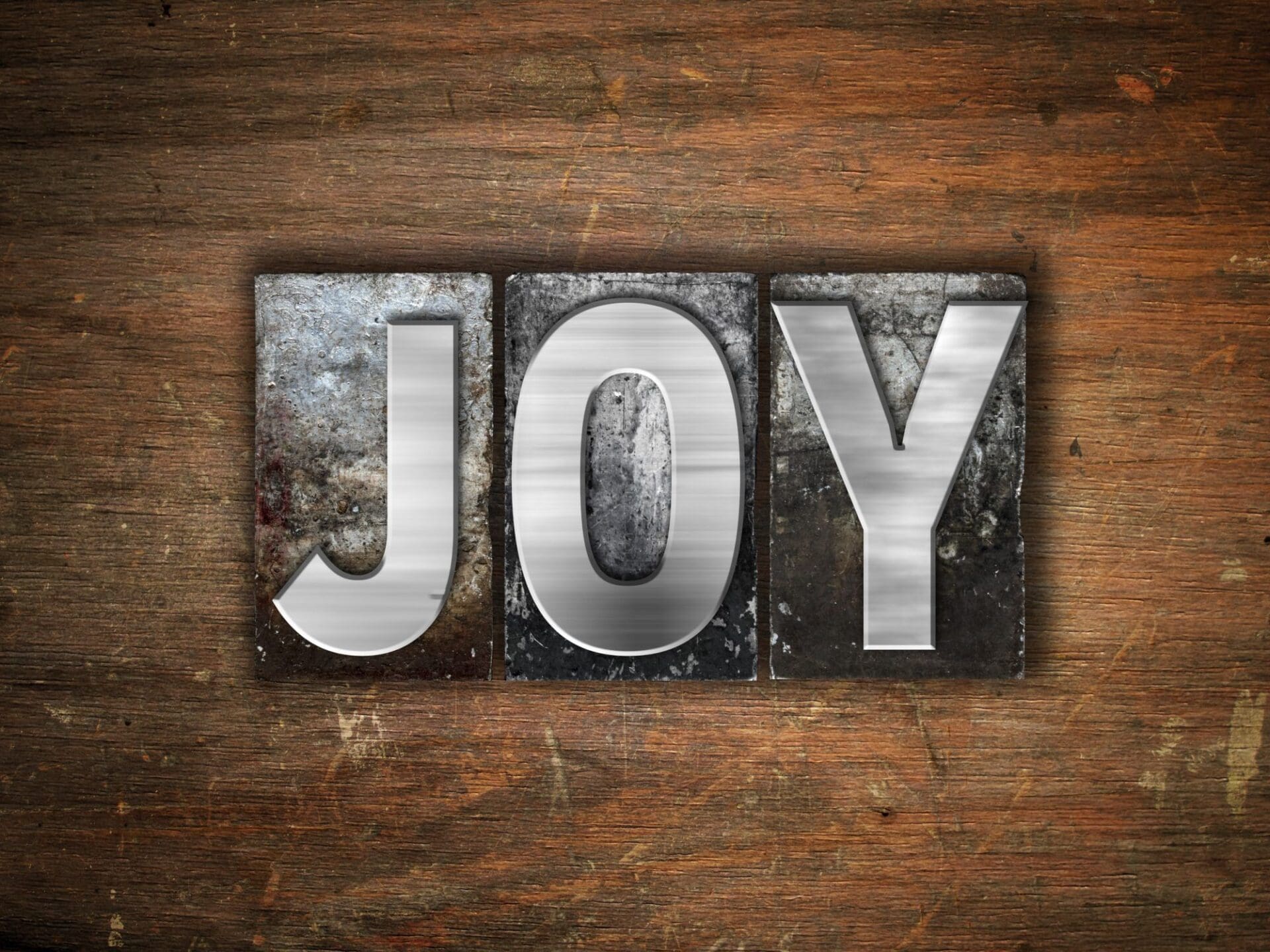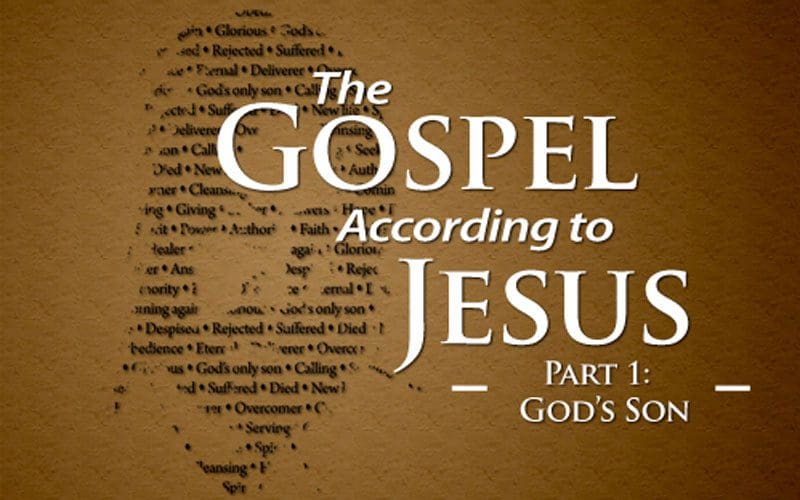
The Hike
Joy
Nehemiah 8:1–18

Some years after Josiah’s failed attempt to call people back to the Bible, God allowed enemies to reduce His own city to a pile of rubble. The Babylonian army laid siege to Jerusalem. There was a terrible loss of life, and those who survived either fled for their lives or were taken prisoner and marched off to resettlement camps in Babylon. But God had not abandoned His people, and after seventy years, a small community returned to rebuild the city.
The city where God had put His name became a smoldering ruin, and silence reigned where a community of believers had once lifted their voices in worship. The temple that had once been filled with the cloud of God’s presence was completely destroyed.
But the Babylonian empire gave way to the rising empire of the Medes and Persians, and a new king, Cyrus, gave the decree that any Jewish exiles who wished to return to Jerusalem and rebuild the temple were free to do so. About fifty thousand people responded to the challenge (Ezra 2:64–67).
Rebuilding the City of God
It was a small group for such a large task, but they were fired up by a vision of rebuilding the temple and forming a new community in the city of God.
Their leader was a builder by the name of Zerubbabel, and his first challenge was to oversee the building of homes. When their ancestors had come into the Promised Land, God had given them homes they did not build and vineyards they did not plant. But when the exiles returned, they had to saw every timber and hammer every nail. After building their homes, God’s people began the task of rebuilding the temple (Ezra 3).
Then God raised up a Bible teacher by the name of Ezra. He was “skilled in the Law of Moses that the LORD, the God of Israel, had given… the hand of the LORD his God was on him” (Ezra 7:6). When Ezra arrived in Jerusalem, he sat down appalled and remained there in a stunned silence until the end of the day (Ezra 9:2–4). He could hardly believe that the people of God in the city of God knew so little about the Word of God.
Sometime later God raised up a gifted planner and organizer named Nehemiah. When he came to Jerusalem, he saw that the city had no defenses. And God put it into his heart to rebuild the walls.
The story of the rebuilding of Jerusalem is a wonderful example of how God brings people with different gifts together to get His work done. God used a builder, a Bible teacher, and a strategic planner, and together, God’s people achieved great things.
Bring Out the Bible!
Ezra was faced with the challenge of teaching the Bible to a community of people who thought they knew the Lord, but who knew very little of His Word. How could these people who had spent their lives in a secular culture be molded into a worshiping community who loved and obeyed the Lord?
Ezra’s strategy was to gather the entire community, around fifty thousand people, in the public square. As they gathered, “they told Ezra the scribe to bring the Book of the Law of Moses that the LORD had commanded Israel” (Nehemiah 8:1).
How do fifty thousand people make a request? They chant! This crowd gathered with a great hunger for the Word of God, and growing impatient for events to get underway, they began to shout: “We want the Bible; bring out the Bible!” It must have been a great joy for Ezra to bring out the Scriptures and to teach this vast crowd the Word of God.
Ezra the priest brought the Law before the assembly, which was made up of men and women and “all who could understand what they heard” (8:2). That means children were there too. It is a powerful thing to bring children into an environment where they see adults worshiping and taking the Word of God seriously.
Great Expectations
The crowd watched expectantly, and when Ezra opened the Scriptures, the people stood (8:5). Then “Ezra blessed the LORD, the great God, and all the people answered, ‘Amen, Amen,’ lifting up their hands. And they bowed their heads and worshiped the LORD with their faces to the ground” (8:6).
A thousand years had passed since God had given His word to Moses, but when the Scripture was opened and explained, the people knew that God was speaking to them. When they heard this book, they knew that they were not listening to the words of a man: they were hearing the very words of God.
Notice, Ezra did not take a trip to Mount Sinai to hear a new word from God. He opened the Book of the Law, which was a thousand years old, believing that when God’s Word is opened, God’s voice is heard.
Making the Meaning Clear
Ezra’s preaching started from the text of the Bible. He explained the message that had already been given. God has promised to bless His own Word (Isaiah 55:11). So the task of the preacher is to fill his words with God’s words so that God’s people will be blessed.
Ezra was supported by the Levites in his task: “They read from the book, from the Law of God, clearly, and they gave the sense, so that the people understood the reading” (Nehemiah 8:8). It seems that the Levites were interspersed in the crowd. Ezra would read a part of the law and explain the meaning. Then the Levites would gather people around them in smaller family groups and ask if they had understood what was read. When everyone was ready, Ezra would continue reading (8:7–8).
There was a direct connection between Ezra’s preaching and a small group setting in which people had the opportunity to ask questions and apply God’s Word. Reading, explaining, and applying the Bible was Ezra’s central strategy for building up the people of God.
The Happiness of God
As Ezra read the law of God, the people mourned and wept because they realized how far they were from what God was calling them to be. So Ezra, Nehemiah, and the Levites said to the people, “‘This day is holy to the LORD your God; do not mourn or weep.’ For all the people wept as they heard the words of the Law” (8:9).
When you open God’s Word, you will discover sins in your life that you didn’t see before. And what grieves the heart of God will grieve your heart as well. The Word of God is sharper than a two-edged sword. It pierces and cuts and wounds (Hebrews 4:12).
God’s Word will convict you of sin, but it is never God’s purpose to leave you there. Conviction of sin is always a means to an end, and the end is that we come to a deeper appreciation of God’s grace. That’s why Nehemiah said, “This day is holy to our Lord. And do not be grieved, for the joy of the LORD is your strength” (Nehemiah 8:10).
Notice that our strength lies in God’s joy, not ours. God is supremely happy in Himself. He is “the blessed and only Sovereign, the King of kings and Lord of lords” (1 Timothy 6:15).
There could be no joy in communion with an unhappy god. If you think that God wears a perpetual frown toward you, you will not be drawn to fellowship with Him. Who wants to walk with a miserable person?
If you think that God has a constant frown toward you, you will hide whenever He comes near. But when you know that God is blessed, that He is supremely happy in Himself, you will be drawn to walk with Him. As you do, the joy that is in God will increasingly be in you.
The Joy of Obedience
On the second day, the heads of each family gathered. The Bible was read again, and “they found it written in the Law that the LORD had commanded by Moses that the people of Israel should dwell in booths during the feast of the seventh month” (Nehemiah 8:14).
This festival involved each family making a temporary dwelling from branches and living in it for seven days. The festival reminded the people of how God had kept their forefathers in the desert. It was also a reminder that everything in this world is temporary and that, like Abraham, they were looking for a heavenly city.
I love the spontaneity of their response. They heard the Word of God and they obeyed it: “So the people… made booths for themselves, each on his roof, and in their courts and in the courts of the house of God” (8:16).
The obedience of these men to the Word of God was infectious! The whole community built booths and lived in them, “and there was very great rejoicing” (8:17). Great joy will be yours when you are obedient to God.
God’s Word will always humble us in our sins, lift us up to see God’s grace and mercy, and draw us into a life of obedience in which we find great joy.
About five hundred years after the time of Nehemiah, Jesus came to Jerusalem to celebrate the feast of booths (John 7:2). And “on the last day of the feast, the great day, Jesus stood up and cried out, ‘If anyone thirsts, let him come to me and drink’” (John 7:37).
If you thirst it means that you have not yet found the peace, satisfaction, and joy you are looking for. The invitation of Jesus is for you. He speaks of Himself as a fountain, and says, “Come to me and drink.” Faith is like drinking from an inexhaustible fountain. It is the means by which you receive Christ and all that He offers.
Opened
Scripture has the power to change a human life and reshape an entire community. When God’s Word is taught, God’s voice is heard. The Bible read and applied will expose our sins and reveal God’s grace. When this leads to repentance and obedience, you will experience great joy.
Nehemiah 8:1–18
Ezra Reads the Law
1 And all the people gathered as one man into the square before the Water Gate. And they told Ezra the scribe to bring the Book of the Law of Moses that the LORD had commanded Israel. 2 So Ezra the priest brought the Law before the assembly, both men and women and all who could understand what they heard, on the first day of the seventh month. 3 And he read from it facing the square before the Water Gate from early morning until midday, in the presence of the men and the women and those who could understand. And the ears of all the people were attentive to the Book of the Law. 4 And Ezra the scribe stood on a wooden platform that they had made for the purpose. And beside him stood Mattithiah, Shema, Anaiah, Uriah, Hilkiah, and Maaseiah on his right hand, and Pedaiah, Mishael, Malchijah, Hashum, Hashbaddanah, Zechariah, and Meshullam on his left hand. 5 And Ezra opened the book in the sight of all the people, for he was above all the people, and as he opened it all the people stood. 6 And Ezra blessed the LORD, the great God, and all the people answered, “Amen, Amen,” lifting up their hands. And they bowed their heads and worshiped the LORD with their faces to the ground. 7 Also Jeshua, Bani, Sherebiah, Jamin, Akkub, Shabbethai, Hodiah, Maaseiah, Kelita, Azariah, Jozabad, Hanan, Pelaiah, the Levites, helped the people to understand the Law, while the people remained in their places. 8 They read from the book, from the Law of God, clearly, and they gave the sense, so that the people understood the reading.
This Day Is Holy
9 And Nehemiah, who was the governor, and Ezra the priest and scribe, and the Levites who taught the people said to all the people, “This day is holy to the LORD your God; do not mourn or weep.” For all the people wept as they heard the words of the Law. 10 Then he said to them, “Go your way. Eat the fat and drink sweet wine and send portions to anyone who has nothing ready, for this day is holy to our Lord. And do not be grieved, for the joy of the LORD is your strength.” 11 So the Levites calmed all the people, saying, “Be quiet, for this day is holy; do not be grieved.” 12 And all the people went their way to eat and drink and to send portions and to make great rejoicing, because they had understood the words that were declared to them.
Feast of Booths Celebrated
13 On the second day the heads of fathers’ houses of all the people, with the priests and the Levites, came together to Ezra the scribe in order to study the words of the Law. 14 And they found it written in the Law that the LORD had commanded by Moses that the people of Israel should dwell in booths during the feast of the seventh month, 15 and that they should proclaim it and publish it in all their towns and in Jerusalem, “Go out to the hills and bring branches of olive, wild olive, myrtle, palm, and other leafy trees to make booths, as it is written.” 16 So the people went out and brought them and made booths for themselves, each on his roof, and in their courts and in the courts of the house of God, and in the square at the Water Gate and in the square at the Gate of Ephraim. 17 And all the assembly of those who had returned from the captivity made booths and lived in the booths, for from the days of Jeshua the son of Nun to that day the people of Israel had not done so. And there was very great rejoicing. 18 And day by day, from the first day to the last day, he read from the Book of the Law of God. They kept the feast seven days, and on the eighth day there was a solemn assembly, according to the rule.
(ESV)
Use these questions to further engage with God's Word. Discuss them with another person or use them as personal reflection questions.
Take the First Step to Open Your Bible
Join 35,000+ people who get ‘Open Today’. Every Wednesday you’ll get resources designed to inspire, encourage, and challenge you in opening your Bible.
Spend 31 days in Psalm 23 with this new book from Pastor Colin Smith for your gift of any amount in April!


